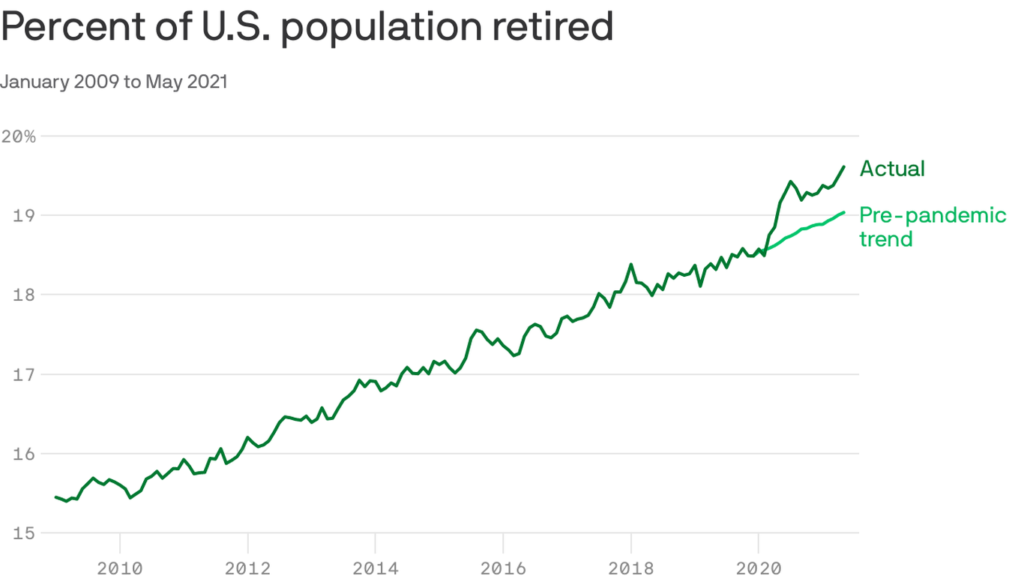As experts attempt to explain why businesses are struggling to hire, some have made the case that the pandemic encouraged older working Americans to retire earlier than expected.
Why it matters: If it’s true that retirements are unusually high, then the labor market may have less slack than many assume.
- However, it’s not too unusual for people to retire only to eventually return to work again.
By the numbers: The percentage of the U.S. population in retirement has been increasing modestly for years, but jumped from 18.5% in February 2020 to 19.6% in May 2021. This is an increase of about 2.9 million people during the period.
- In a study first conducted by the Dallas Fed in May, and updated in July for Axios, just 1.2 million would have retired assuming a continuation of 2019 retirement rates.
- This means an extra 1.7 million retired earlier than expected.
- This trend is confirmed by the labor force participation rate, which remains depressed at 38.4% for those age 55 and over. This is down from 40%+ levels before the pandemic.
What they’re saying: “Early-retirement decisions during the pandemic, boosted by well-cushioned 401(k) accounts, have partly dampened the supply of older workers,” wrote Oxford Economics lead U.S. economist Lydia Boussour.
- “The virus’ significant health risks for the most senior workers and their lower ability to telework led many to opt out of the workforce.”
Yes, but: “I am convinced that at least some of the retirement population is more transitory in nature, especially given that some are relatively young,” Invesco chief global market strategist Kristina Hooper tells Axios.
- Retirees could come back as wages increase and COVID risk subsides — and as retirement savings dries up, Hooper says.
The bottom line: “People’s decisions to work is affected by a wide array of factors, and even if some constraints are removed it’ll take some time before the post-COVID normal resembles the pre-COVID normal,” Oxford Economics’ chief U.S. economist Greg Daco tells Axios.

